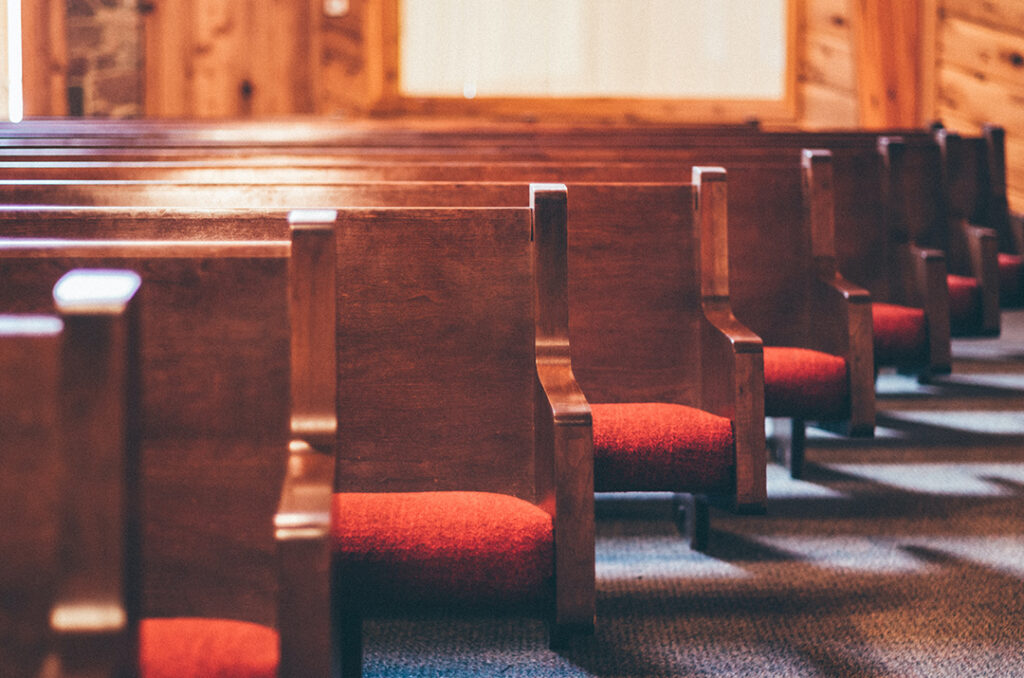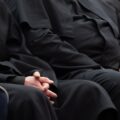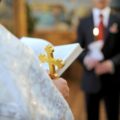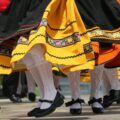Confronting the past: European churches deal with complex histories
Confronting the past: European churches deal with complex histories
In recent years European churches have either chosen or been forced to reflect on their pasts, both the good and, more often, the bad.
In recent years, questions of historical actions of major institutions, and their legacies in the modern day, have been important issues of debate. Churches across Europe have been among those affected.
The EARS dashboard is a tool that allows us to track developments in religion and society in Europe, and over recent months it has picked up on a number of articles on this theme. Its tools allow us to compare and contrast these issues in various countries. This article focuses on the similarities and differences between the UK, France, and Spain.
Is an apology enough? The Church of England and the slave trade
Ever since the Black Lives Matter protests following the death of George Floyd in 2020, the Church of England has been required to look back on its own past connections to the transatlantic slave trade. During the protests, in June 2020, the Church released a statement acknowledging its “complex” history in the subject. Whilst outlining their support for the later abolition movement, it acknowledged the “role of many individuals, and the Church itself, in the trade of human beings.”[1]
Since then, discussions have been ongoing within the Church on how to go further on this subject. In January 2023, the Church of England announced plans to create a £100m fund dedicated to “addressing past wrongs” with regards to the transatlantic slave trade. The decision followed an investigation into the history of the Church’s investments, which included participation in the trade. The Archbishop of Canterbury, Justin Welby, said the Church was “deeply sorry for these links” and added “it is now time to take action to address our shameful past.”[2]
While there has therefore been clear progress, critics have questioned why the descendents of slaves themselves were not consulted when deciding the next steps. As described by Clayton Goodwin for the New African Magazine, the Church’s work on this question “is a good start. But that is what it is – a start.”[3]
Therefore, it is evident that while the Church is no longer seeking to ignore its past links, there are still significant challenges to overcome. Greater inclusion for those who have descended from the victims of its past abuses must be a priority going forwards.
Changing the narrative – the French Catholic Church and the Holocaust
In 2023, the EARS dashboard recorded a number of articles regarding how the Catholic Church has sought to reopen the debate about its role in the Holocaust in France. This topic is not entirely new, with a 2020 TV5Monde documentary studying in detail the policies of the French Catholic Church towards antisemitic persecution during the Second World War.[4]
However, in more recent times, the Church has been making a more active effort to reconsider this period. An April 2023 article in Aleteia focused on an interview with Emmanuelle Moskovitz, a researcher at the archives department of the Yad Vashem Holocaust museum in Israel. Moskovitz explained how the Church has opened its archives to her team, with the aim of “shedding light on the role of [so-called] Righteous Catholics,” who helped to rescue Jews during the war. Looking to the future, the researcher added that she hoped that the French Church’s steps would inspire “hundreds of religious communities” across Europe to open their archives to Yad Vashem.[5]
While this historical research is being undertaken, the role of Catholics during the Second World War has also been the subject of a comic book series entitled The Righteous Among the Nations. As explained by one of the creators, Yvon Bertorello, it is often incorrectly believed that the Church “massively collaborated” with the Nazis under the Vichy regime. To combat this idea, his series emphasises the role of Catholics and in particular the bishop of Nice in seeking to help French Jews.[6]
Evidently, both culturally and institutionally, there are efforts by French Catholics to reopen discussions about this part of the past. However, observers must be wary that for this to be a true reflection on their past, the Church must not only explore the positive roles played by some Catholics but also the potential complicity of others. As Bertorello explained in his interview, there were also examples of “cowardice and compromises” by some Church figures, and these cannot be simply washed away by reflecting only on the positives.[7]
Spain’s Law of Democratic Memory
Finally, in Spain, once again the Church’s relationship with the Francoist dictatorship (1939-1975), has been an issue of contention over the last year. The historical context of this topic is discussed in more detail in a January 2022 article published by EARS.
However, it has once again become a regular news topic following the implementation of the Law of Democratic Memory. The law prohibits the “celebration of the Francoist dictatorship,” with significant fines in place for those who fail to follow it.[8] Across Spain, churches have been responding in line with these changes. For example, in the region of Aragón, 23 plaques celebrating supporters of the dictatorship have been removed.[9] In a more high-profile case, as a result of the law, the La Macarena church in Seville announced it would exhume the body of Francoist general Gonzalo Queipo de Llano, who was buried in the church.[10]
Furthermore, the law has also forced the changing of the name of the Valley of the Fallen estate, to the Valley of Cuelgamuros.[10] The site, which was previously the burial place of Franco before his exhumation, is also home to a monastery and a basilica. The future of these religious elements has been a point of contention in recent years.[11]
These headlines over recent months once again remind people that the Spanish Catholic Church has been reluctant to voluntarily come to terms with this part of its past. Instead, it has been required to do so by law.
The past as key to the future
By using the dashboard, we are able to see that across Europe, the Church is entering into discussions, either by choice or by obligation, about its past. While in the UK and France, this reflection has been more voluntary than in Spain, all three nations share the fact that uncomfortable periods of the Church’s history cannot be hidden forever. Crucially, much of the legitimacy of the institutions in the future will depend on how they come to terms with their past.
Interested in similar topics? Go to our Dashboard to learn more.
Sources
[1] The Church and the legacy of slavery
[2] Church of England announces £100m fund after slavery links – BBC News
[3] Does Church of England’s slavery reparation fund go far enough?
[4] La France catholique face à la Shoah
[5] Shoah : l’Église en France rouvre ses archives
[6] «En France, l’Eglise est l’institution qui a sauvé le plus de juifs» – Portail catholique suisse
[7] «En France, l’Eglise est l’institution qui a sauvé le plus de juifs» – Portail catholique suisse
[8] La Iglesia ha retirado en Aragón 23 vestigios franquistas para cumplir con la ley de memoria democrática
[9] La Macarena cumplirá “escrupulosamente” la nueva Ley de Memoria Democrática para exhumar a Queipo
[10] El Valle de los Caídos pasa a llamarse Valle de Cuelgamuros con la Ley de Memoria Democrática
[11] Las seis claves para entender cómo será el futuro del Valle de los Caídos






